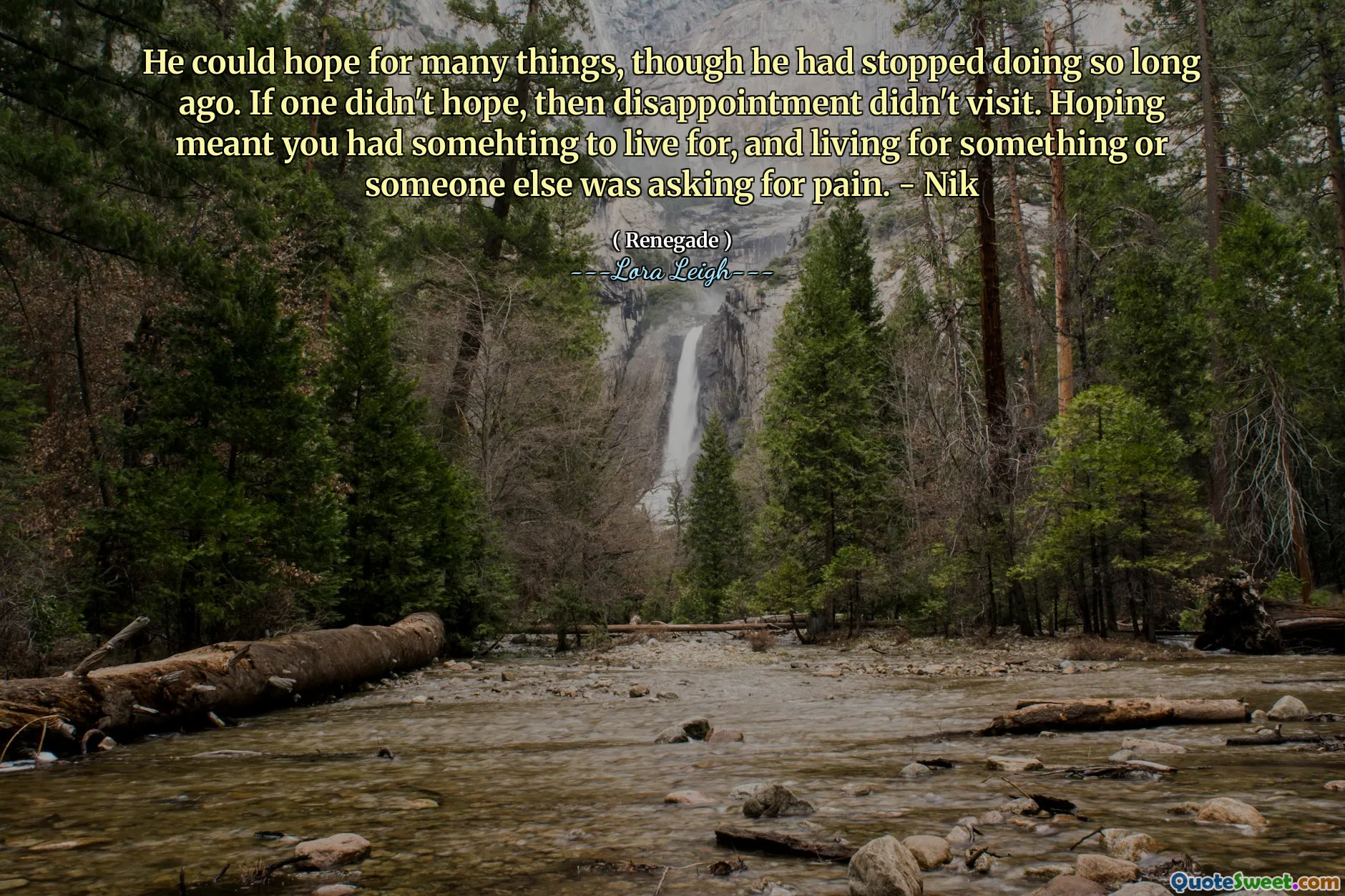
He could hope for many things, though he had stopped doing so long ago. If one didn't hope, then disappointment didn't visit. Hoping meant you had somehting to live for, and living for something or someone else was asking for pain. - Nik
This quote delves into the complex emotions surrounding hope and the pain it can bring. The individual's decision to cease hoping signifies a protective emotional retreat, perhaps forged through repeated disappointment. By stopping hope, they shield themselves from the inevitable pain of unmet desires, recognizing that hope often leads to suffering when expectations aren't fulfilled. The statement suggests that hope is intertwined with purpose—implying that as long as one hopes, they have a reason to live and strive. However, this pursuit can also open the door to vulnerability since investing emotionally in others or in aspirations increases the risk of heartbreak. The acknowledgment of pain associated with loving or caring for someone or something else hints at a stoic acceptance of life's hardships. It raises the question of whether avoiding hope is truly protective or if it leads to a numb acceptance of existing within limitations. This perspective resonates with themes of emotional resilience and self-preservation, emphasizing that sometimes shielding oneself from hope can prevent suffering, even if it also diminishes the capacity for joy and fulfillment. The internal struggle between openness and self-protection is a universal theme, reflecting the delicate balance people navigate between vulnerability and strength. Such sentiments highlight the human condition, wherein the desire for connection and purpose significantly conflicts with the fear of inevitable pain, making this a poignant reflection on acceptance and emotional survival.






